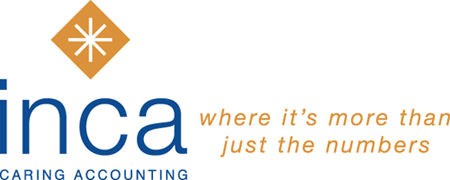Do you own a residential property that’s not your main home? Perhaps you purchased it before you met your partner, or maybe you inherited it from a relative. However you came to own the property, when you come to sell it, you’ll be liable to pay Capital Gains Tax on any profit you make within 60 days of completing the transaction.
How much Capital Gains Tax you’ll have to pay will depend on two factors:
- The size of your gain
Capital Gains Tax will effectively be payable on the difference between the amount you originally paid for the property and the amount you get when you sell it (there are various adjustments made, but the basis of the tax bill is the increase in value over the period of ownership).
- Your status as a taxpayer
If you’re a higher or additional rate taxpayer, you’ll have to pay 28% Capital Gains Tax on your profit; and if you pay tax at the basic rate, the rate you pay will depend on your taxable income as well as the size of the gain, but begins at 18%.
If the property you’re selling is in your name only, you’ll have to bear the full burden of Capital Gains Tax alone. You’ll be required to pay the appropriate rate on any gain, so if you’re an additional or higher rate taxpayer, that means 28% of your profit over and above your personal tax-free allowance (more on this in a moment) will be diverted to HM Treasury.
You can’t avoid your responsibilities of course, but if you’re married or in a civil partnership, you do have an opportunity to reduce your liability.

How sharing ownership with your partner can save you money
As noted already, if the property you plan to sell is in your name only, any Capital Gains Tax due when you complete the sale will fall to you alone. Every taxpayer is entitled to a tax-free annual capital gains tax allowance of £12,300 (in addition to their standard Personal Annual allowance), and you’ll be able to use this to offset any tax owed.
But a couple disposing of a jointly owned property can combine their tax-free allowances, so they will only begin to pay Capital Gains Tax on gains over £24,600.
What’s more, because an individual’s taxable income determines the rate at which they pay Capital Gains Tax, there’s a further benefit for couples who are in different tax brackets. Where one is an additional or higher rate taxpayer and the other a lower rate taxpayer, only half of their combined gain over £24,600 will be subject to 28% tax – the remainder will be taxed at a lower rate of 18% based on the size of the gain and the lower earners taxable income.
Allocating equity to your partner
Adding your spouse or civil partner to the deeds of a property you own is relatively straightforward. You’ll need to engage the services of a solicitor to prepare a transfer deed and advise you on the form of joint ownership that’s best for you. There are two options: as Joint Tenants, each of you can hold 50% of the equity in the property, or as Tenants in Common, each of you can own an equal or different percentage share.
If you’re simply a couple or you’re engaged to be married, transferring equity won’t be beneficial – and it probably won’t be the most romantic gesture you can make!
Timing is everything!
We love saving our clients money, so it was a huge disappointment recently to find that we were just too late to help a client when they appointed us to advise on their personal tax affairs. In our initial discussion, they revealed that they’d very recently disposed of a second property that was in their name only. As a higher earner, they were about to have to settle a Capital Gains Tax bill for 28% on the profit they’d made from the sale.
If they’d come to us prior to selling, we would have been able to reduce the tax liability significantly. As a married person, they could easily have changed the property ownership and allocated equity to their spouse ahead of the sale. Using their spouse’s tax-free allowance alone would have saved them nearly £3.5k immediately – and because their partner is a lower rate taxpayer, they could have paid just 18% on half of their gain rather than 28% on all of it!
Homeowners who are married or in a civil partnership and considering selling a property that’s in their name only and not their main home; and conveyancing solicitors and estate agents working with clients in this position should seek advice about sharing equity.
Before You Sell – Talk to Inca!
Whether you’re the property owner or a professional acting on their behalf, Inca can look at the sale and advise you on the best course of action from a tax planning perspective. Let us calculate the optimum equity split so that you – or your client- have all the information needed to make the most financially advantageous decision ahead of a sale.
Get in touch with one of our advisors today.
Call us now on 01235 868888 email us at [email protected]




